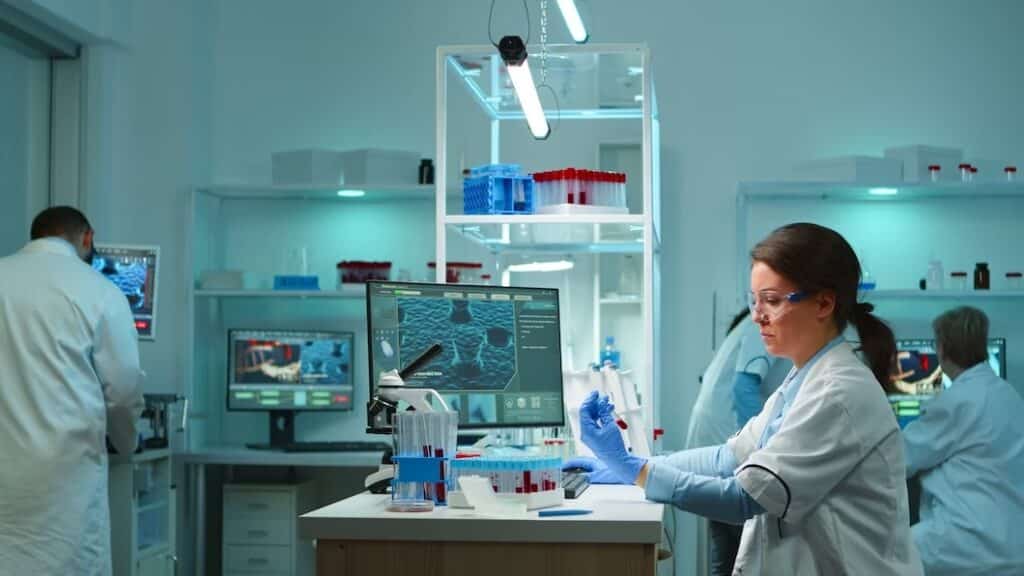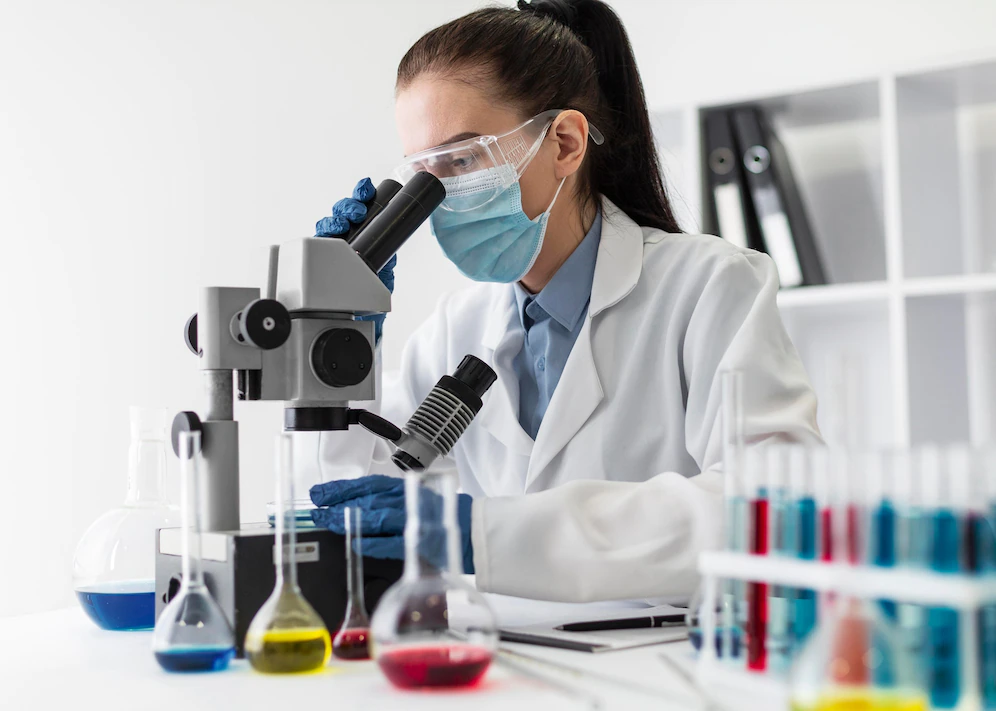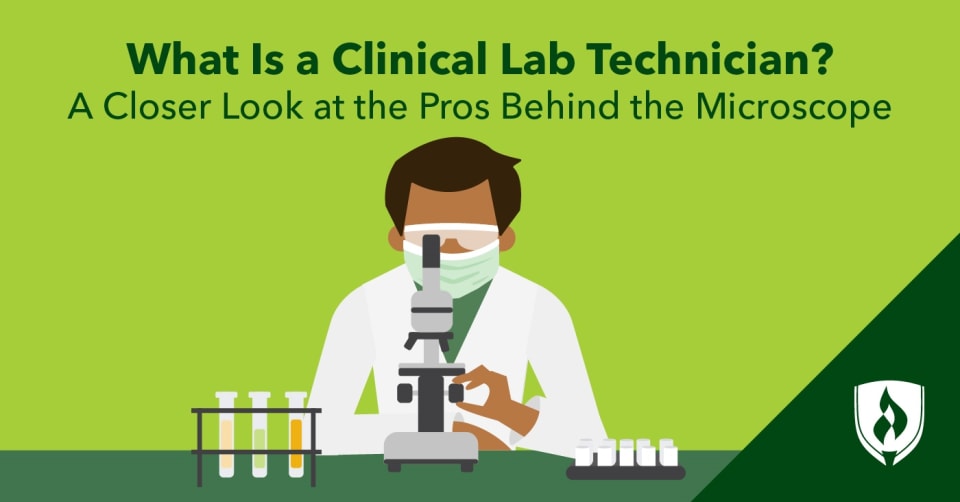In the field of medical science, there are various career options that individuals passionate about medical laboratory work can explore. Two such roles are Medical Lab Technicians and Technologists. While both professionals play crucial roles in maintaining the smooth functioning of medical laboratories, there are distinct differences between the two. In this article, we will delve into the key disparities between Medical Lab Technicians and Technologists, define their roles, and provide insights to help you decide which career path aligns with your interests and goals.
What is a Medical Lab Technician?
A Medical Lab Technician is a medical scientist who works under the supervision of a physician, lab manager, or lab technologist. Their primary responsibility is to conduct tests on biological samples in medical laboratories. These tests contribute to the identification of diseases and aid doctors in making accurate diagnoses. Additionally, Medical Lab Technicians may work in research laboratories, where they perform tests to gather data about samples. Their work is critical in assisting physicians in diagnosing medical conditions and evaluating the effectiveness of treatments.

Some typical responsibilities of a Medical Lab Technician include:
-
Preparing and maintaining lab equipment.
-
Using solutions to prepare samples for testing.
-
Analyzing biological samples using lab equipment.
-
Recording observations and test results.
-
Reporting test results to physicians and discussing potential diagnoses.
-
Collecting samples from patients.
-
Updating patient records with data gathered from testing.
-
Monitoring inventory and ordering lab equipment or supplies as needed.
What is a Technologist?
A Technologist, on the other hand, is an advanced laboratory professional who performs complex tests on biological samples. They work as part of a healthcare team to collect samples, run lab equipment, perform tests, and record data. Technologists also collaborate with physicians to assess the health of tissues and may supervise other members of the laboratory team, including technicians. These professionals often pursue specialized degrees that qualify them to work in their preferred roles.
The typical responsibilities of a Technologist include:
-
Preparing, using, and maintaining laboratory equipment.
-
Collecting samples for analysis.
-
Conducting thorough or complex analyses of biological samples.
-
Working closely with physicians to determine which tests to perform.
-
Supervising and mentoring other members of the lab team, such as technicians.
-
Continuing education to stay updated on new laboratory techniques.
-
Performing specialized analyses, such as identifying cancer cells, infectious diseases, and immune system deficiencies.
 Medical Lab Technician vs. Technologist: Key Differences
Medical Lab Technician vs. Technologist: Key Differences
While Medical Lab Technicians and Technologists share some similarities in their roles, there are significant differences between the two professions. Let’s explore some of the key disparities:
Degree of Complexity
Technologists are capable of performing more complex laboratory tests compared to Medical Lab Technicians. While technicians can conduct basic tests such as blood work or urine analyses, technologists can handle more intricate testing procedures. For example, technologists may work in laboratories equipped with specialized tools to identify and diagnose cancer cells. Moreover, technologists possess a deeper understanding of medical conditions, allowing them to collaborate with doctors and contribute to formal diagnoses. Technicians, on the other hand, fulfill support roles in laboratories by managing equipment and performing routine tests.
Education Requirements
The educational requirements for becoming a Medical Lab Technician or Technologist differ. Medical Lab Technicians typically earn an associate degree in a relevant field, such as clinical laboratory science or pathology. These degree programs generally consist of both classroom study and practical training in professional laboratory settings. On the contrary, Technologists require at least a bachelor’s degree to qualify for their roles. They pursue degrees in laboratory science, biology, or related subjects at the bachelor’s level, allowing them to gain extensive scientific and medical knowledge.
Opportunities to Specialize
Technologists usually have more opportunities to specialize than technicians. While technicians can choose to work in pathology labs, where they collect samples to determine the cause of death in deceased individuals, or in general medical laboratories, their options for specialization are somewhat limited. Technologists, with their advanced credentials, are qualified to perform advanced lab testing, enabling them to work in diverse laboratory settings. They can specialize in areas such as cancer research and diagnosis, immunology, or microbiology.
How to Choose Between Technician and Technologist
Choosing between a career as a Medical Lab Technician or Technologist can be a significant decision. Here are some tips to consider when making your choice:
1. Reflect on Your Personal Interests
Take some time to reflect on your personal interests to determine which career path is best suited for you. Both being a technician and a technologist can be great options if you enjoy medical science and working in a laboratory environment. However, if you have a particular interest in a specific area of medicine, a career as a technologist may be more appealing. Technologists have more opportunities to specialize, whereas technicians often work as generalists in lab environments. If you prefer utilizing your general knowledge of lab equipment and techniques, a technician career might be a good fit.
2. Determine Your Educational Goals
Consider your educational goals when deciding between a technician and technologist career. Both paths require some level of college education, but technicians only need an associate degree. Associate degree programs typically take around two years to complete and include a combination of classroom study and practical work experience in a laboratory setting. On the other hand, technologists need a bachelor’s degree or higher. These programs typically take about four years to complete. If you choose to pursue a career as a technologist, be prepared for a longer and more extensive educational journey.
3. Consider Your Financial Needs
Take into account your financial goals and needs when choosing a career. Laboratory technicians and technologists earn different salaries, so understanding the potential income of each profession is important. On average, laboratory technicians earn around $59,669 per year, while medical technologists earn an average of $65,092 per year. However, these salary averages can vary based on factors such as geographic location, years of experience, level of education, area of specialty, and the setting of employment. Technologists typically earn more than technicians due to their higher education credentials and ability to perform specialized duties.

Conclusion
In summary, Medical Lab Technicians and Technologists both play crucial roles in the functioning of medical laboratories. While technicians focus on conducting basic tests and supporting lab operations, technologists perform complex tests, collaborate with physicians, and often specialize in specific areas of laboratory work. The choice between a technician and technologist career depends on personal interests, educational goals, and financial needs. By considering these factors, you can make an informed decision and embark on a fulfilling career in the field of medical laboratory science.
